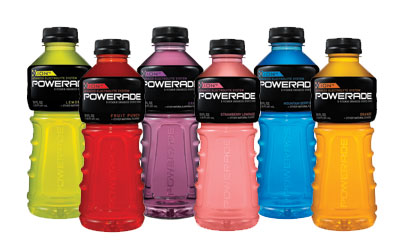Susan Kundrat , MS, RD, CSSD, LDN, is the Sports Dietitian at the University of Illinois and President of Nutrition on the Move, Inc.
Susan wrote the following article that I thought was extremely important for my viewers to take the time and read.
OPTIMAL HYDRATIONThe need for golfers to hydrate cannot be stressed enough as players are outside, often in hot weather, for hours at a time. Just a one-percent loss in bodyweight from dehydration increases the heart rate. And a two-percent drop in bodyweight from dehydration can begin to affect performance significantly--including impaired motor skills and cognitive thinking.
 Going into play well hydrated and sticking to a hydration schedule is
imperative. As a general rule, after their pre-round meal that includes
fluids, golfers should plan to drink at least eight ounces of fluid
every hour leading up to play, and at least eight to 16 ounces of water
or sports drink every four to five holes.
Going into play well hydrated and sticking to a hydration schedule is
imperative. As a general rule, after their pre-round meal that includes
fluids, golfers should plan to drink at least eight ounces of fluid
every hour leading up to play, and at least eight to 16 ounces of water
or sports drink every four to five holes. "Starting the round hydrated and staying that way is important," says Melinda Valliant, PhD, RD, CSSD, Sports Dietitian at the University of Mississippi. "While it's a low intensity sport, NCAA golfers are required to walk the course and commonly play 36 holes a day. Getting in adequate fluids leading up to play can really make a difference once the golfers get on the course."
Although some golfers prefer water, sports drinks are generally a better choice because of the added carbohydrates and electrolytes. Water may work just fine on cooler days when players are not sweating excessively, as long as they are taking in enough carbohydrates through consistent snacks during the round. The key is to ingest at least 30 grams of carbohydrates per hour, or 16 ounces of sports drink over nine holes.
In hot, humid weather, fluid intake may need to be doubled. When golfers are noticeably sweating, sports drinks are a better choice than water because of their ability to replace electrolytes, especially sodium. Players should consider storing powdered sports drink packets in their bags so they can mix them into their water bottle on the course, depending on conditions.
In moderate amounts, caffeinated drinks can be an advantage for players since caffeine may enhance alertness, but golfers should experiment with caffeinated drinks in practice before utilizing them during competition. Too much caffeine can have negative effects like jitteriness, shakiness, or an inability to concentrate.

A 2009 study from Northumbria University in England supports golfers consuming sports drinks containing carbohydrates and a small amount of caffeine. Researchers had 20 male golfers each play a round of golf, with the players consuming two different fluids before playing the sixth and 12th holes. The double-blind study found that the golfers who drank a carbohydrate-caffeine drink (6.4 grams carbohydrate and 16 milligrams caffeine per 100 milliliters) improved their putting performance and experienced lower perceived mental fatigue when compared to those who consumed a no-energy, flavor-matched placebo beverage.
Golfers should also vary hydration plans in different climates to figure out how to maintain hydration levels. For example, in cooler weather, six to eight ounces of water or a sports drink may be adequate every four to five holes, whereas in hot weather, 12 to 16 ounces of fluid in that time is more appropriate. When the weather is both hot and humid, some golfers will need to bump up their hydration plan to 20 or more ounces every four to five holes, being sure to drink at every hole.
It's always best for a golfer to try out their hydration plan during practice rounds and plan ahead to be sure they know what to take in and when. Players can periodically weigh themselves before and after playing in different weather conditions leading up to a tournament to adjust intake and keep weight loss to less than one to two percent of bodyweight during the round.
No comments:
Post a Comment